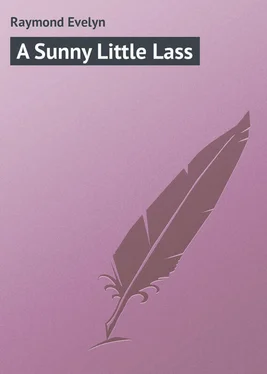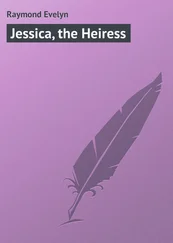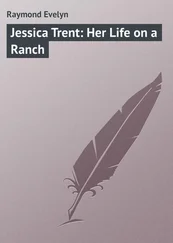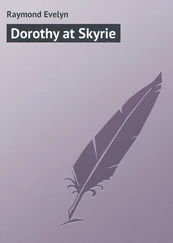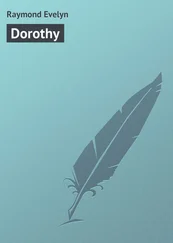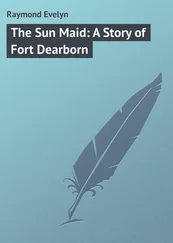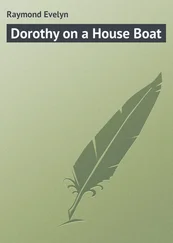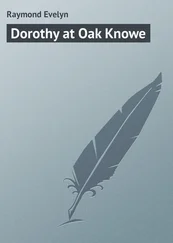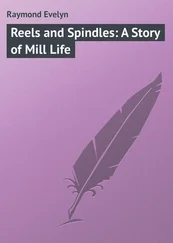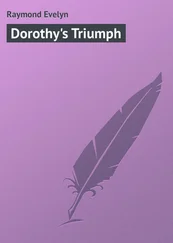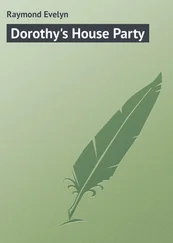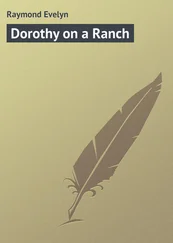Evelyn Raymond - A Sunny Little Lass
Здесь есть возможность читать онлайн «Evelyn Raymond - A Sunny Little Lass» — ознакомительный отрывок электронной книги совершенно бесплатно, а после прочтения отрывка купить полную версию. В некоторых случаях можно слушать аудио, скачать через торрент в формате fb2 и присутствует краткое содержание. Жанр: foreign_prose, foreign_children, на английском языке. Описание произведения, (предисловие) а так же отзывы посетителей доступны на портале библиотеки ЛибКат.
- Название:A Sunny Little Lass
- Автор:
- Жанр:
- Год:неизвестен
- ISBN:нет данных
- Рейтинг книги:5 / 5. Голосов: 1
-
Избранное:Добавить в избранное
- Отзывы:
-
Ваша оценка:
- 100
- 1
- 2
- 3
- 4
- 5
A Sunny Little Lass: краткое содержание, описание и аннотация
Предлагаем к чтению аннотацию, описание, краткое содержание или предисловие (зависит от того, что написал сам автор книги «A Sunny Little Lass»). Если вы не нашли необходимую информацию о книге — напишите в комментариях, мы постараемся отыскать её.
A Sunny Little Lass — читать онлайн ознакомительный отрывок
Ниже представлен текст книги, разбитый по страницам. Система сохранения места последней прочитанной страницы, позволяет с удобством читать онлайн бесплатно книгу «A Sunny Little Lass», без необходимости каждый раз заново искать на чём Вы остановились. Поставьте закладку, и сможете в любой момент перейти на страницу, на которой закончили чтение.
Интервал:
Закладка:
“Why, to the nicest home ever was. Can’t be a nicer nowhere, not any single where. Not even on that big avenue where such shiny people as him live. Why, we’ve got a hull house to ourselves, haven’t we?”
“Child, stop. Tell me exact, as you never told before. Is Elbow Lane a ‘slum’?”
“‘Deed I don’t know, ’cause I never heard tell of a ‘slum’ ’fore. It’s the cutest little street ever was. Why, you can ’most reach acrost from one side to the other. Me an’ Billy has often tried. It’s got the loveliest crook in it, right here where we be; an’ one side runs out one way an’ t’other toward the river. Why, grandpa, Posy Jane says onct–onct, ’fore anybody here was livin’, the Lane was a cow-path an’ the cows was drove down it to the river to drink. Maybe she’s lyin’. ’Seems if she must be, ’cause now there ain’t no cows nor nothin’ but milk-carts an’ cans in corner stores, an’ buildin’s where onct she says was grass–grass, grandpa, do you hear?”
“Yes, I hear, mate. But the folks, the neighbors. A slum, deary, I guess a slum is only where wicked people live. I don’t know, really, for we had no such places on the broad high sea. Are our folks in the Lane wicked, daughter?”
“Grandpa!” she cried, indignantly. “When there’s such a good, good woman, Jane’s sister Meg-Laundress, what washes for us just ’cause I mend her things. An’ tailor-Jake who showed me to do a buttonhole an’ him all doubled up with coughin’; an’ Billy Buttons who gives us a paper sometimes, only neither of us can read it; an’ Nick, the parson, who helps me sort my goobers; an’ Posy Jane, that’s a kind o’ mother to everybody goin’. Don’t the hull kerboodle of ’em treat you like you was a prince in a storybook, as I’ve heard Billy tell about? Huh! Nice folks? I should think they was. Couldn’t be any nicer in the hull city. Couldn’t, for sure, an’ I say so, I, Glory Beck.”
“And all very poor, mate, terrible, desperate poor; an’ ragged an’ dirty an’ swearers, an’ not fit for my pet to mix with. Never go to church nor Sunday-school, nor – Eh, little mate?” persisted the old man, determined to get at the facts of the case at last.
Glory was troubled. In what words could she best defend her friends and convince her strangely anxious guardian that Elbow folks were wholly what they should be? Since she could remember she had known no other people, and if all were not good as she had fancied them, at least all were good to her. With all her honest loyal heart she loved them, and saw virtues in them which others, maybe, would not have seen. With a gesture of perplexity, she tossed her head and clasped her hands, demanding:
“An’ what’s poor? Why, I’ve heard you say that we’re poor, too, lots o’ times. But is any of us beggars? No, siree. Is any of us thievers? No, Grandpa Beck, not a one. An’ if some is ragged or dirty, that’s ’cause they don’t have clothes an’ spigots handy, an’ some’s afraid o’ takin’ cold, like the tailor man. Some of us lives two er three families in a room, but–but that’s them. Me an’ you don’t. We have a hull house. Why, me an’ you is sort of rich, seems if, and – It’s that big shiny-hatted man makes you talk so queer, grandpa darlin’, an’ I hate him. I wish he’d stayed to his house an’ not come near the Lane.”
“No, no, mate, hate nobody, nobody. He meant it kind. He didn’t know how kindness might hurt us, deary. He is Colonel Bonnicastle, who owned the ship I mastered, an’ many another that sails the sea this day. He’s got a lot to do with the ‘Harbor’ an’ never dreamed how’t we’d known about it long ago. A good ship it was an’ many a voyage she made, with me layin’ dollars away out of my wage, till the sudden blindness struck me an’ I crept down here where nobody knew me to get over it. That’s a long while since, deary, and the dollars have gone, I always hopin’ to get sight again and believin’ I’d done a fine thing for my orphan grandchild, keepin’ so snug a place over her head. So far, I’ve paid the rent reg’lar, and we’ve had our rations, too. Now, mate, fetch me the bag and count what’s in it.”
The little canvas bag which Glory took from the tiny wall-cupboard seemed very light and empty, and when she had untied the string and held it upside down not a coin fell from it. The old man listened for the clink of silver but there was none to hear and he sighed deeply as he asked, “Empty, Glory?”
“Empty, grandpa. Never mind, we’ll soon put somethin’ back in it. You must get your throat cleared and go out early an’ sing your loudest. I’ll get Toni to let me have a fifty-bagger, an’ I’ll sell every single one. You might make as much as a hull quarter, you might, an’ me–I’ll have a nickel. A nickel buys lots o’ meal, an’ we can do without milk on our porridge quite a spell. That way we can put by somethin’ toward the rent, an’ we’ll be all right.
“Maybe,” little Glory went on, “that old colonel don’t have all to say ’bout the ‘Harbor.’ Maybe he don’t like little girls an’ that’s why. I’ll get Cap’n Gray to find out an’ tell. He likes ’em. He always gives me a cent to put in the bag–if he has one. He’s poor, too, though, but he’s got a daughter growed up ’at keeps him. When I get growed I’ll earn. Why, darlin’ grandpa, I’ll earn such a lot we can have everything we want. I will so and I’ll give you all I get. If–if so be, we don’t go to the ‘Harbor’ after all.”
The captain stroked his darling’s head and felt himself cheered by her hopefulness. Though they were penniless just now, they would not be for long if both set their minds to money getting; and, as for going to “Snug Harbor” without Glory, he would never do that, never.
“Well, well, mate, we’re our own masters still; and, when the colonel sends his man for me, I’ll tell him ‘no,’ so plain he’ll understand. ’Less I may be off on my rounds, singin’ to beat a premer donner. Hark! mess-time already. There goes eight bells. What’s for us, cook?”
As he spoke, the little bell, which hung from the ceiling, struck eight tinkling notes and Glory’s face clouded. There was nothing in the tiny cupboard on the wall save a remnant of porridge from breakfast, that had cooled and stiffened, and the empty money-bag.
“O grandpa! So soon? Why, I ought to have finished Jane’s jacket and took it to her. She’d have paid me an’ I’d ha’ got the loveliest chop from the store ’round the corner. But now, you dear, you’ll just have to eat what is an’ make the best of it. Next time it’ll be better an’ here’s your plate.”
Humming a tune and making a great flourish of plate and spoon, she placed the porridge before the captain and watched his face anxiously, her heart sinking as she saw the distaste apparent at his first mouthful. He was such a hungry old dear always, and so was she hungry, though she didn’t find it convenient to eat upon all such occasions. When there happened to be enough food for but one, she was almost glad of the sailor’s blindness. If he smelled one chop cooking on the little stove, how should he guess there weren’t two? And if she made a great clatter with knife and plate, how could he imagine she was not eating?
Up till now, Glory could always console herself with dreams of the “Snug Harbor” and the feasts some day to be enjoyed there. Alas! The colonel’s words had changed all that. For her there would be no “Harbor,” ever; but for him, her beloved grandpa, it was still possible. A great fear suddenly possessed her. What if the captain should get so very, very hungry, that he would be tempted beyond resistance, and forsake her after all! She felt the suspicion unworthy, yet it had come, and as the blind man pushed his plate aside, unable to swallow the unpalatable porridge, she resolved upon her first debt. Laying her hand on his she begged, “Wait a minute, grandpa! I forgot–I mean I didn’t get the milk. I’ll run round an’ be back with it in a jiffy!”
Читать дальшеИнтервал:
Закладка:
Похожие книги на «A Sunny Little Lass»
Представляем Вашему вниманию похожие книги на «A Sunny Little Lass» списком для выбора. Мы отобрали схожую по названию и смыслу литературу в надежде предоставить читателям больше вариантов отыскать новые, интересные, ещё непрочитанные произведения.
Обсуждение, отзывы о книге «A Sunny Little Lass» и просто собственные мнения читателей. Оставьте ваши комментарии, напишите, что Вы думаете о произведении, его смысле или главных героях. Укажите что конкретно понравилось, а что нет, и почему Вы так считаете.
